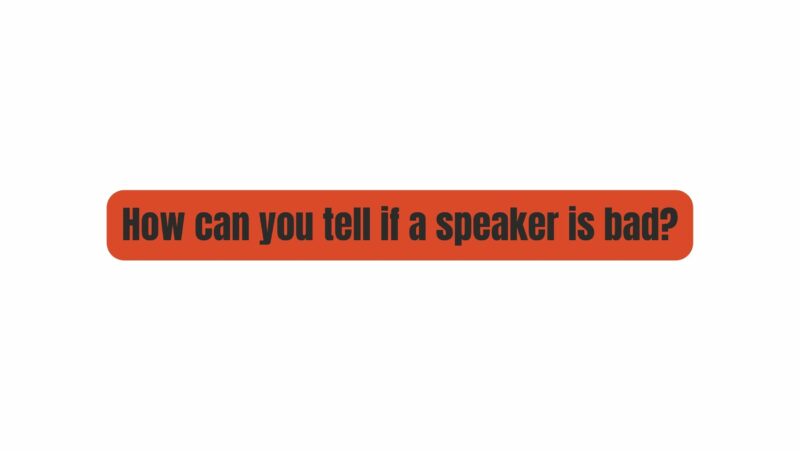Speakers can be damaged or worn out over time, and there are a few signs that can indicate that a speaker is bad.
Here are some of the most common signs of a bad speaker:
- Reduced sound quality: If you notice that the speaker is not sounding as good as it used to, this could be a sign that it is bad. The sound may be muffled, distorted, or lacking in bass.
- Crackling or popping noises: If you hear crackling or popping noises coming from the speaker, this is another sign that it may be bad. These noises are caused by the speaker cone rubbing against the surround.
- Loss of sensitivity: If you have to turn up the volume higher than usual to get the same sound level, this could be a sign that the speaker is losing sensitivity. This means that it is not able to reproduce sound as efficiently as it used to.
- Worn or damaged cone: If you see the cone of the speaker starting to tear or become warped, this is a sure sign that it is bad. The cone is the most delicate part of a speaker and is easily damaged.
- Loose or damaged surround: The surround is the rubber or foam ring that helps to hold the cone in place. If it becomes loose or damaged, the cone can rub against the speaker frame, causing noise and damage.
- Overheating: If the speaker starts to overheat, this is a serious sign that it is bad. Speakers should not get too hot, as this can damage the components.
- No sound: If you don’t hear any sound coming from the speaker, even when it is turned on, this is a sure sign that it is bad.
If you notice any of these signs, it is important to replace the speaker as soon as possible. Continuing to use a bad speaker can damage your amplifier and other components in your sound system.
Here are some additional tips to help you prevent your speakers from becoming bad:
- Buy high-quality speakers: Speakers that are made with high-quality materials are less likely to become bad.
- Avoid overdriving your speakers: Make sure that you are not sending more power to your speakers than they can handle.
- Be careful with your speakers: Avoid dropping or knocking them over.
- Keep your speakers clean: Dust and dirt can build up on the cones and other components of the speakers and make them less able to move freely. To clean your speakers, use a soft cloth and a mild cleaning solution.
- Store your speakers properly: When you are not using your speakers, store them in a cool, dry place.
By following these tips, you can help to extend the lifespan of your speakers and prevent them from becoming bad.

